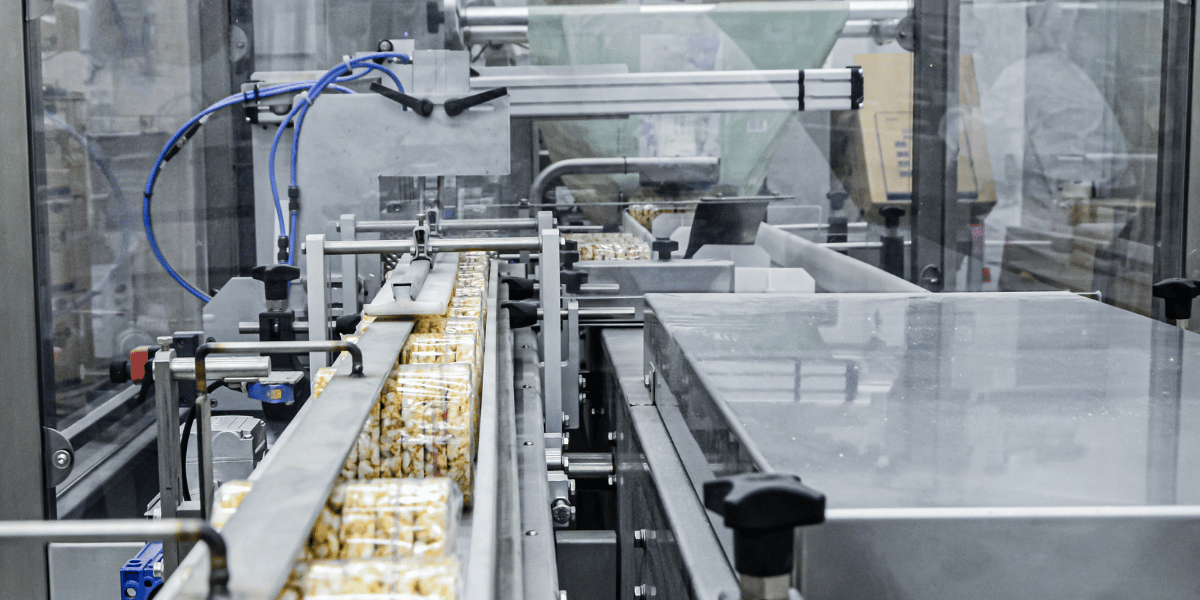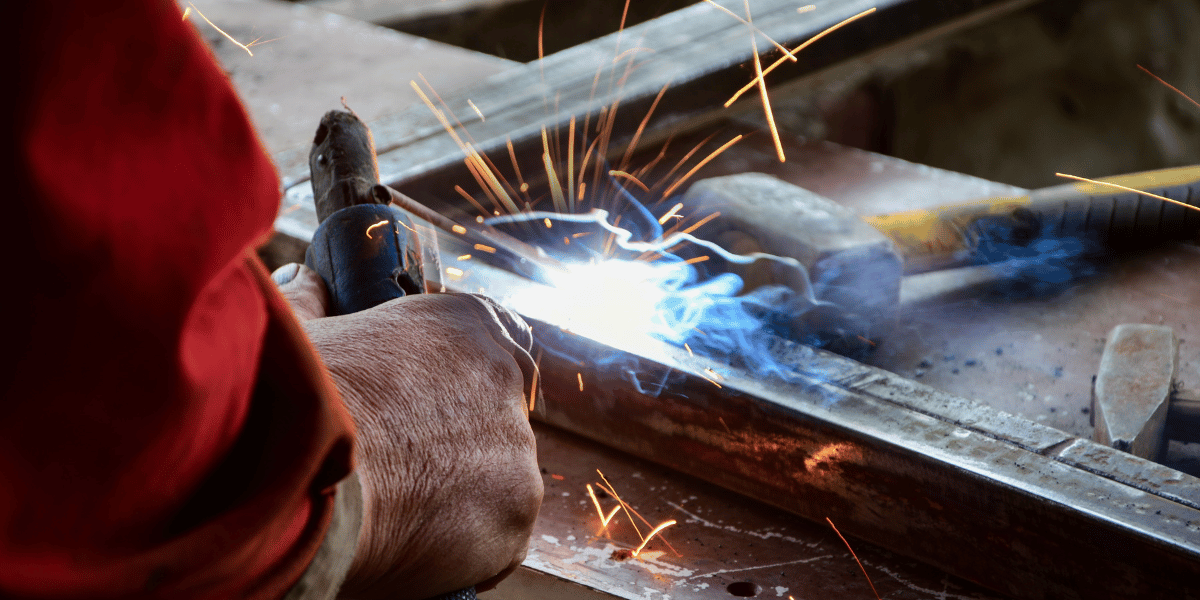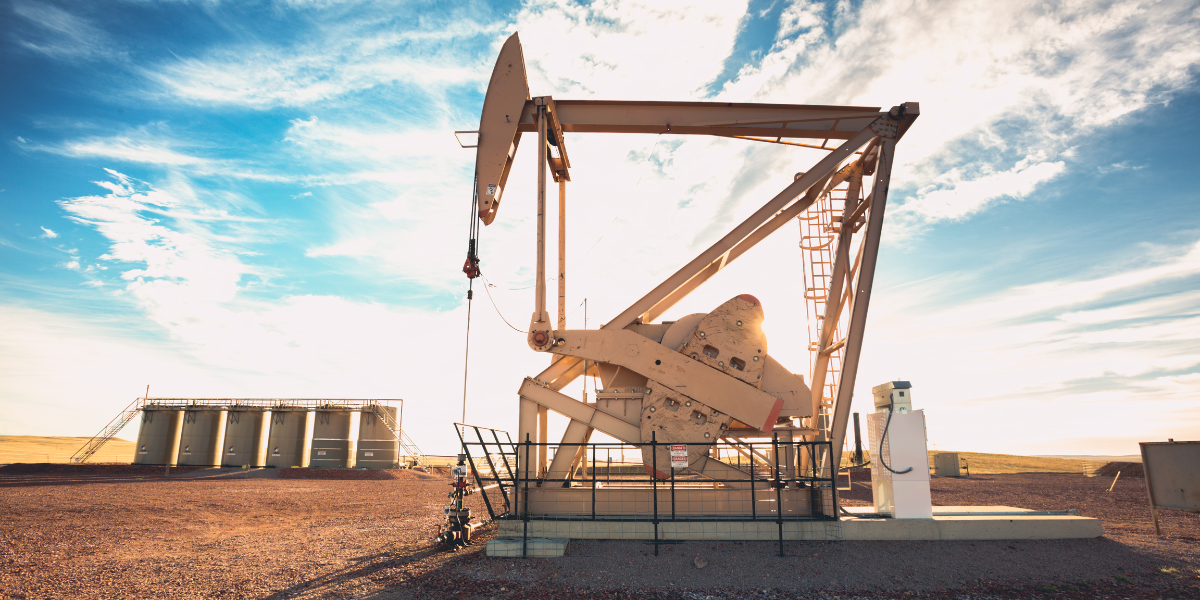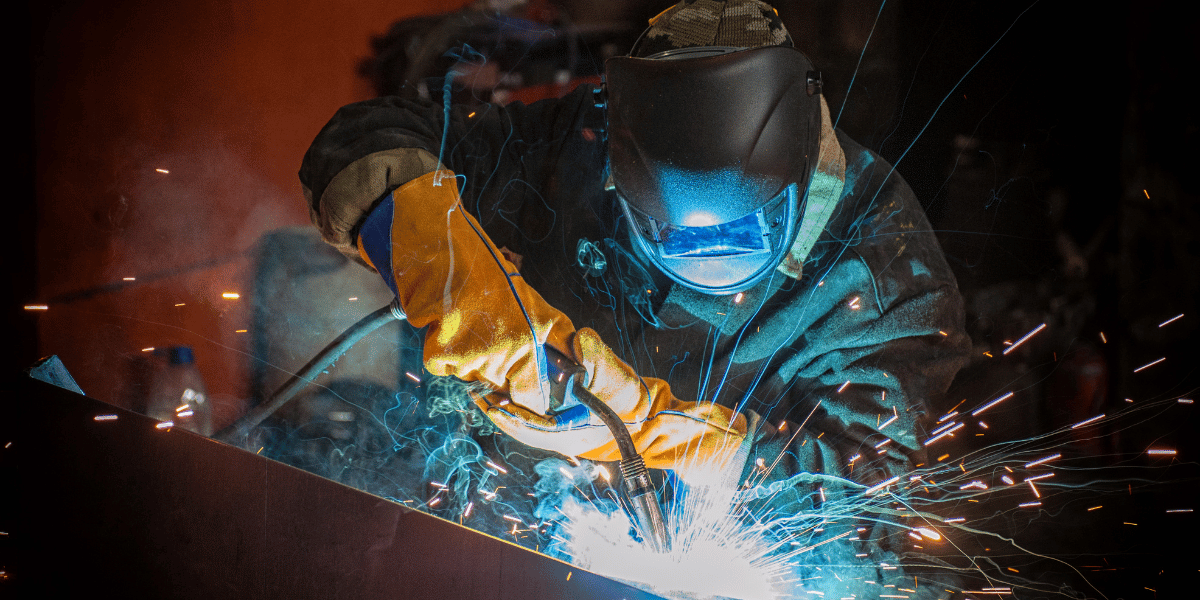The Importance of AISC Certification in the Fabrication Industry
At Cypress Fabrication, we are committed to delivering the highest quality in our fabrication services. Our dedication to excellence is demonstrated...
3 min read
 Cypress Fabrication Services
:
Dec 5, 2024 9:34:38 AM
Cypress Fabrication Services
:
Dec 5, 2024 9:34:38 AM

Food and beverage manufacturers face heightened pressure to ensure the quality and affordability of their products. Consequently, they need to optimize production processes where possible to maintain high standards and remain competitive. Custom metal fabrication is a great way to support this goal.
Metal is everywhere in food and beverage manufacturing, from production equipment to product packaging. As a result, these businesses have a lot to gain from custom metal solutions.
Sanitation and safety are some of the biggest concerns in this industry. Custom metal fabrication services can serve this need by providing more resistant materials and preventing cross-contamination in the work line.
Tungsten inert gas (TIG) and orbital welding, for example, minimize microbial growth hazards by creating smoother, cleaner joints. Fewer imperfections leave less space where bacteria and other contaminants could grow on or stick to. A less porous finish also enables easier cleaning and disinfection, making it simpler to uphold regulatory standards within the workplace.
Similarly, a custom metal partner can provide microbe-resistant materials for cans, fermentation tanks or other critical structures. Stainless steel is a common choice for its easy cleaning and rust resistance, and aluminum has natural antimicrobial properties.
Custom metal fabrication can also help food and beverage companies become more sustainable. Part of this is through ongoing material care, as proper metal selection impacts an organization’s carbon footprint.
Nonferrous metals are more corrosion-resistant than others because they have no iron content. By fabricating equipment from these resources, food manufacturers can extend their machinery’s life span, reducing the need for additional materials down the line. As a result, their supply chain emissions fall.
Professional standards like DNV certification provide additional confidence in metal components’ sustainability. DNV-certified fabricators must adhere to sustainability guidelines, so working with such a partner means food and beverage companies can improve their Tier 2 and 3 environmental impacts.
Similarly, custom metal solutions in food and beverage applications ensure better long-term equipment maintenance. Historically, construction accounts for 30% of all waste, so building and installing new machinery the conventional way can incur unnecessary costs. A certified fabricator will produce custom metal solutions less wastefully and minimize similar costs in the future by enabling better maintenance. Cardboard waste from packaging equipment can be reduced using industrial balers to improve compliance and reduce hauling.
When a piece of equipment breaks down, custom metal fabrication and welding processes can get it back up and running in minimal time. As a result, the manufacturer stays productive. These lower operating costs, in turn, help maintain profits while keeping prices low for consumers.
Equipment fabricated specifically for a workplace’s unique considerations is also likely to last longer and perform better than an off-the-shelf solution. Consequently, there will be fewer maintenance issues to manage in the first place.
Custom fabrication can also apply to food and beverage packaging. Creating unique can and tin designs helps differentiate a product from competitors on the shelf. Sales and marketing reach may rise as a result.
Metal packaging’s recyclability is also worth considering. A staggering 84% of U.S. consumers report feeling concerned about packaging waste. In light of this trend, providing eye-catching, easy-to-recycle containers can distinguish a brand as eco-friendly, help buyers meet their own environmental goals and aid in landfill diversion.
As climate issues grow, such concerns will become increasingly prominent. Adapting to meet them now through custom metal fabrication can help manufacturers get ahead of future market shifts.
In light of all these benefits, food and beverage companies should take custom metal solutions seriously. However, not every service or strategy is equally beneficial in all scenarios. Brands must follow a few best practices to use custom fabrication to its full potential.
First, manufacturers must understand what standards their equipment and packaging need to meet. The FDA’s Current Good Manufacturing Practices require risk-based preventive measures that can influence the materials, cleaning and maintenance necessary. Organizations should only work with fabrication partners who can comply with such regulations.
Food safety should come first, but after ensuring that, manufacturers can consider factors like costs and turnaround times. A custom metal solution may not be as beneficial as it seems at first if it takes too long or costs too much to install, leading to downtime. By contrast, a reliable, efficient partner will enable greater savings and returns on investment.
Finally, food and beverage businesses should think about the future. Plan for scalability. What may seem expensive today but provides greater assurance at higher volumes may be worth the investment down the line.
Food and beverage manufacturing depends heavily on reliable metal equipment and packaging. Consequently, partnering with a custom fabrication provider can do a lot of good for the company in the long term.
Optimal metal products improve safety, sustainability, efficiency and customer relations. Once manufacturers understand these benefits, they can take informed next steps to level up their production.
At Cypress Fabrication Services, we are a leading ASME-certified metal fabrication company with over twenty years of experience in the oil and gas industry. We specialize in custom metal fabrication for upstream, midstream, and downstream operations. All of our products are designed and fabricated to meet your specific process requirements, as well as various industry standards including our DNV skid certification, ABS certification, ASME pressure vessels, and AISC fabrication.

At Cypress Fabrication, we are committed to delivering the highest quality in our fabrication services. Our dedication to excellence is demonstrated...

Fracking, or hydraulic fracturing, is an important method used to extract natural gas and oil from deep within the earth. The process involves...

Welding is a vital part of metal fabrication, used to join two or more pieces of metal together. There are several types of welding processes, each...